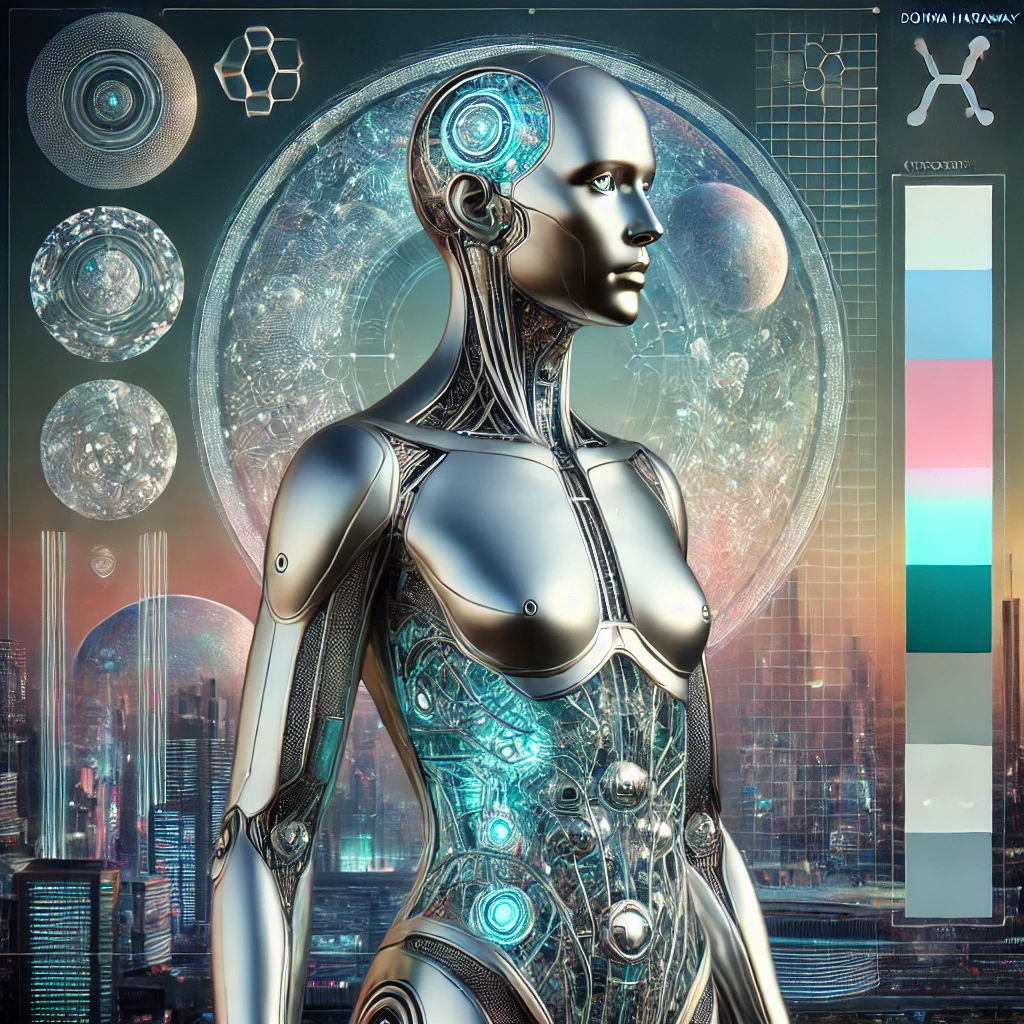Donna Haraway’s Cyborg Manifesto and Janelle Monáe’s Dirty Computer may appear to be from vastly different worlds—an academic essay from the mid-1980s and a futuristic concept album from 2018. Yet, both works converge on shared themes of identity, resistance, and the fluidity of the human identity. Haraway’s cyborg—a fusion of machine and organism that disrupts conventional boundaries—is mirrored in Monáe’s portrayal of “dirty computers,” individuals whose non-conforming identities challenge societal norms in a dystopian world. Monáe takes Haraway’s theoretical vision and weaves it into a heartfelt narrative, exploring fluidity, rebellion, and liberation.
Haraway’s essay imagines a “post-gender” world where identity is no longer constrained by traditional binaries. Her cyborg metaphor dismantles divisions such as human/machine, nature/culture, and male/female, arguing that these boundaries perpetuate inequality. Similarly, Monáe’s album celebrates identities that resist categorization, representing her own fluid identity. Songs like “PYNK” embrace the fluidity of gender and sexuality, rejecting fixed definitions in favor of a spectrum. Monáe’s lyrics and visuals suggest that liberation lies in embracing multiplicity—an idea central to Haraway’s manifesto.

Moreover, Haraway frames the cyborg as inherently political, a symbol of resistance against oppressive systems. This is vividly echoed in Monáe’s Dirty Computer, which tells the story of Jane 57821, a rebel in a society that “cleans” non-conforming individuals to erase their identities. Tracks like “Django Jane” and “Crazy, Classic, Life” celebrate defiance and self-expression, aligning with Haraway’s vision of the cyborg as a figure that destabilizes oppressive power structures. Monáe’s dystopia critiques real-world systems of control, from surveillance to social conformity, much like Haraway’s cyborg challenges the dominance of capitalist and patriarchal ideologies. Haraway’s cyborg can be further examined in this analysis by Rebecca Pohl.
Monáe also mirrors Haraway’s exploration of technology as a double-edged sword. In Cyborg Manifesto, technology is both a tool of oppression and a means of subversion. The cyborg’s hybridity offers a way to reimagine identity beyond traditional limits. Similarly, Monáe’s album presents technology as a battleground. Songs like “Screwed” critique how power exploits technological tools, while the album’s narrative ultimately suggests that technology can also be reclaimed for liberation. The concept of being a “dirty computer” embraces the idea of imperfection as a form of resistance, much like Haraway’s cyborg rejects purity in favor of hybrid identities.
Finally, both Haraway and Monáe emphasize the importance of collective solidarity. Haraway envisions a world where the cyborg fosters new alliances that transcend race, gender, and class. Monáe’s work embodies this ethos, particularly in her collaboration with diverse artists and her calls for unity among marginalized communities. Songs like “Americans” highlight the intersections of different struggles, advocating for a future where differences are celebrated rather than erased.
In blending the theoretical with the personal, Haraway and Monáe challenge us to envision futures where identity is not a source of division but a wellspring of creativity and strength. While Haraway provides the framework, Monáe breathes life into it, creating a vivid, emotionally resonant exploration of what it means to resist conformity in a world that demands uniformity. Together, they remind us that the boundaries we draw—between human and machine, male and female, self and other—are not fixed but fluid, and in that fluidity lies the potential for radical transformation. To get a more in depth review of Monae’s album Dirty Computer, check out this link.
Published by